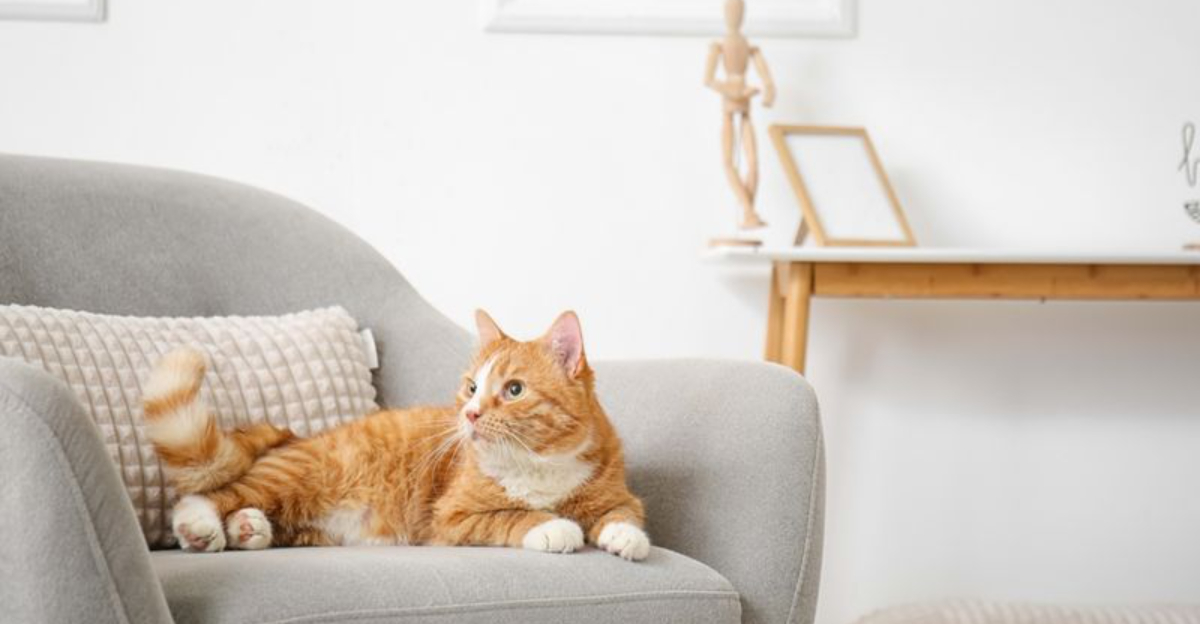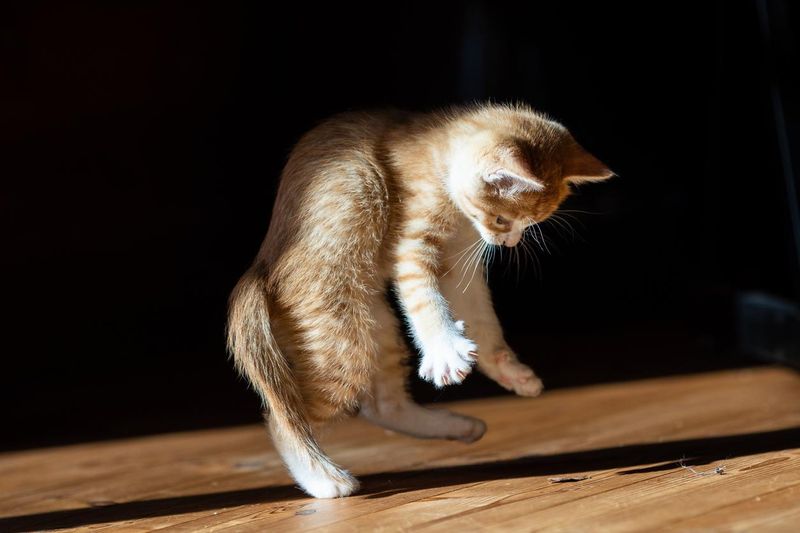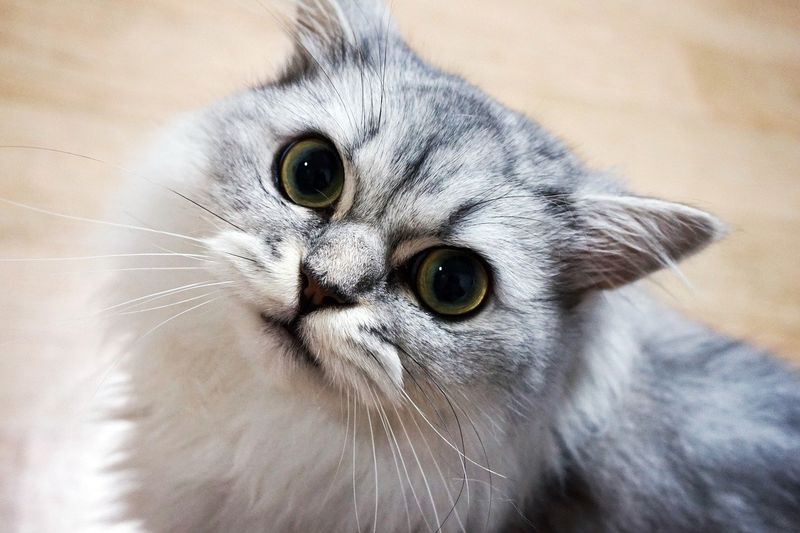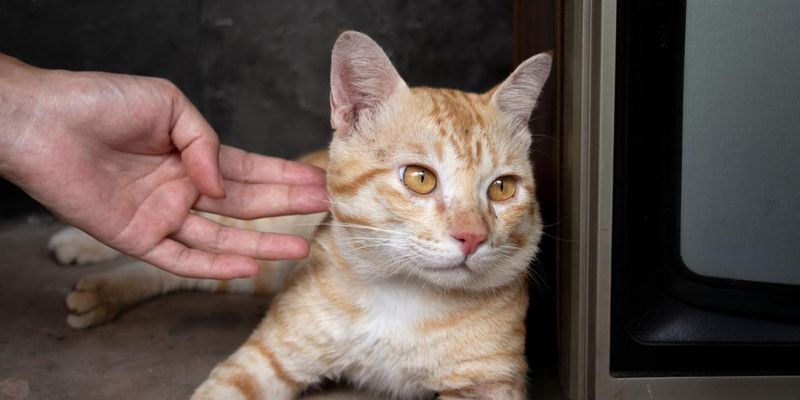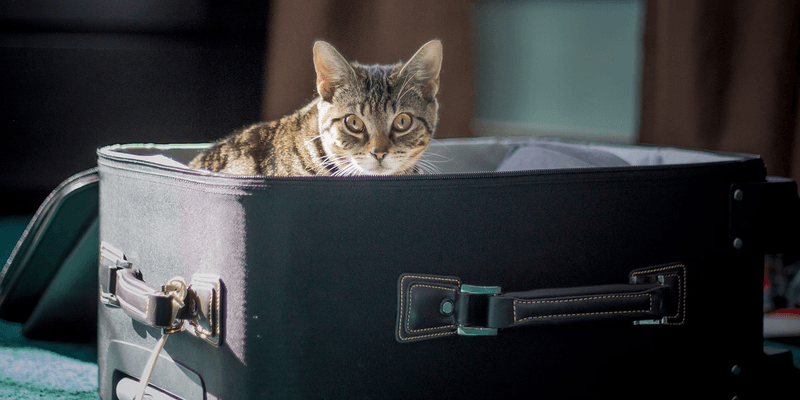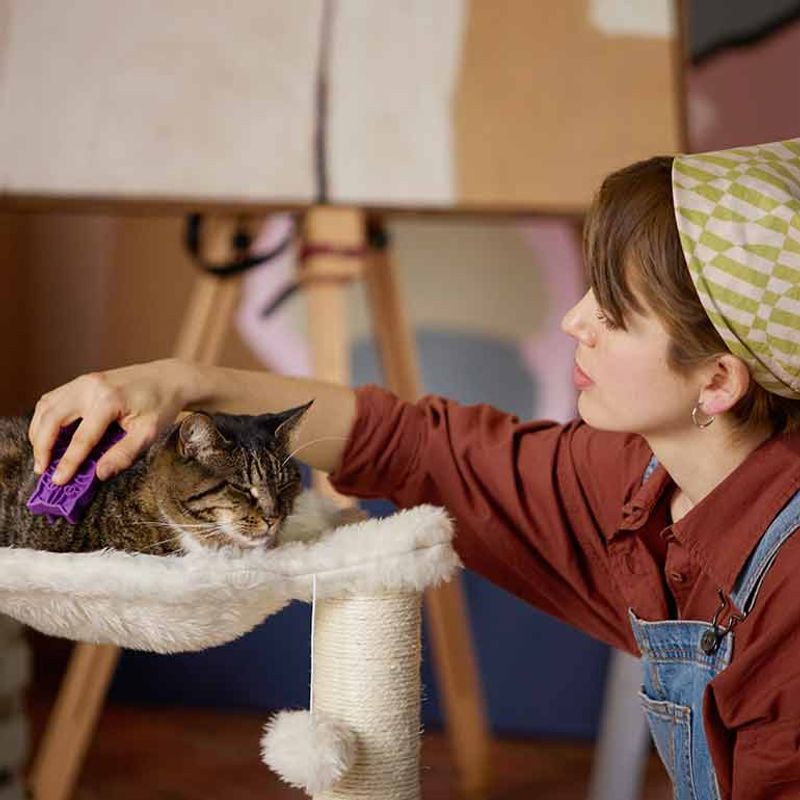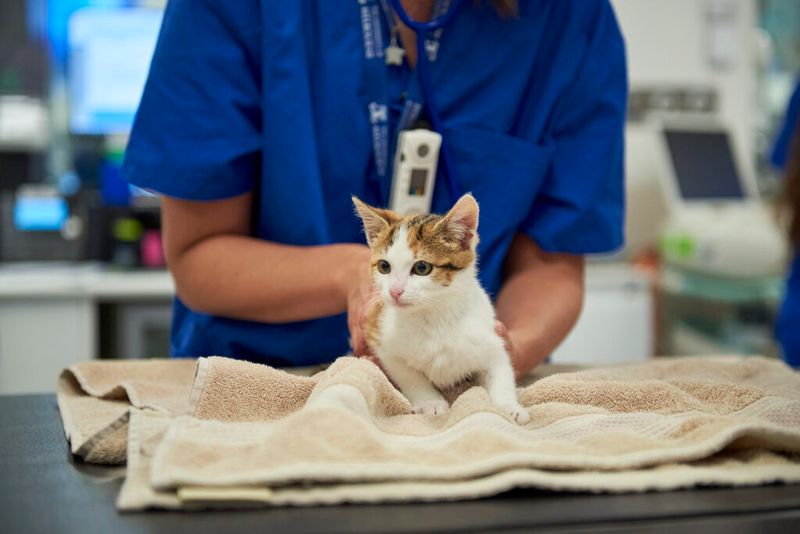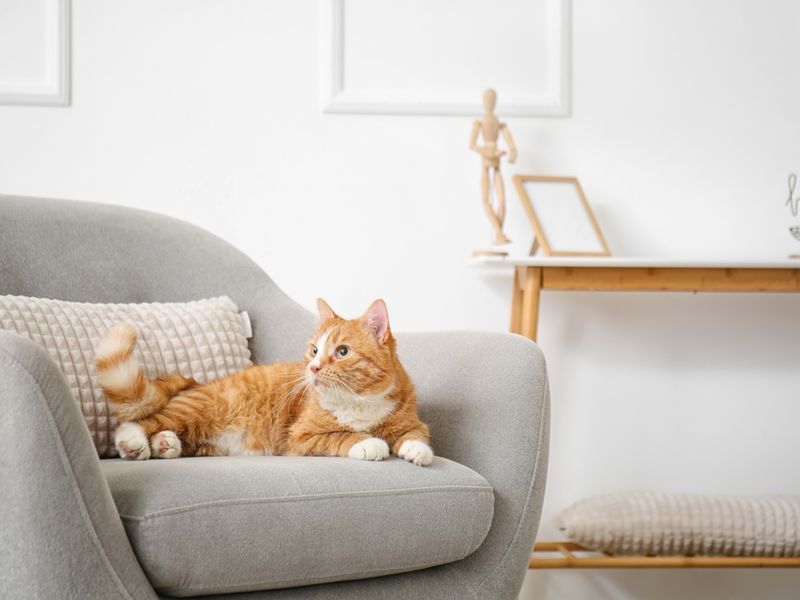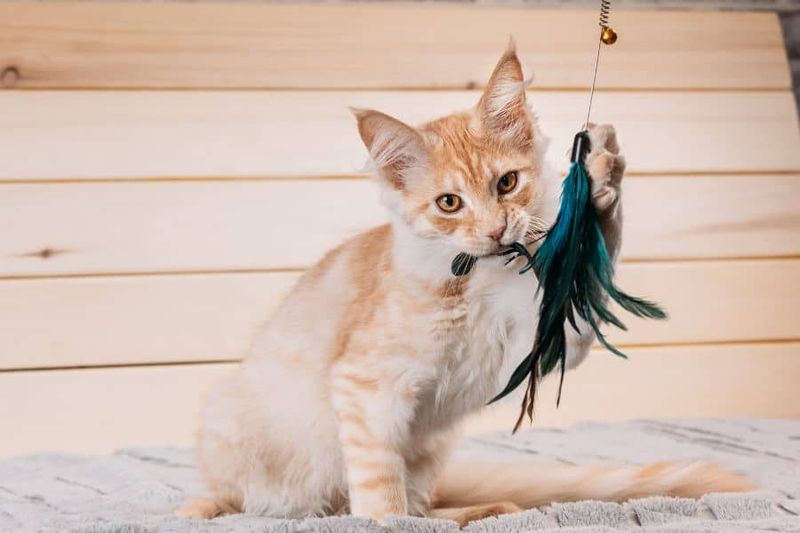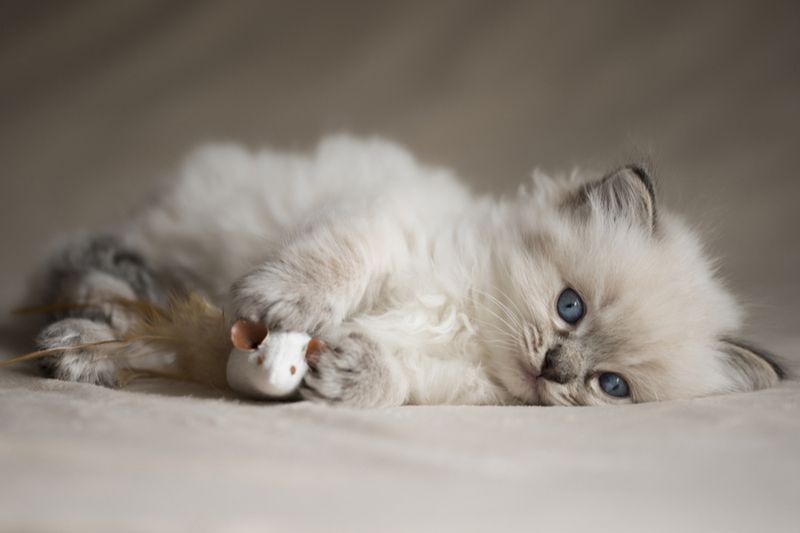📖 Table of Content:
- 1. You Think Litter Boxes Clean Themselves
- 2. You’re Not Ready for 3 A.M. Zoomies
- 3. You’re Allergic, and Hoping It’ll Just Go Away
- 4. You Expect Constant Cuddles and Affection
- 5. You Travel Frequently Without a Pet Care Plan
- 6. You Can’t Handle the Sight of Hair on Everything
- 7. You’re Not Financially Ready for Emergencies
- 8. You Don’t Want to Adjust Your Decor or Lifestyle
- 9. You Think Cats Don’t Need Attention
- 10. You Haven’t Researched Breed or Personality Differences
Bringing a cat into your life might seem like a low-maintenance dream: soft purrs, gentle headbutts, and cute videos for days. But the truth is, while cats can be more independent than dogs, they’re not as effortless as some people assume. Owning a cat is a real commitment, and if you’re not fully prepared, both you and your feline friend could end up stressed, frustrated, or worse—miserable.
Many people adopt a cat expecting a chill roommate who lounges all day and demands little more than kibble and occasional ear scratches. That myth gets shattered quickly when faced with 3 a.m. sprints, surprise vet bills, and shredded furniture. The decision to become a cat parent should come from an informed place, not impulse or aesthetic.
If you’re thinking of adding a furry companion to your household, pause and check yourself against these 10 signs. If more than a few feel familiar, it might be time to hold off—or prepare more thoroughly. A cat isn’t just a pet; it’s a long-term emotional and financial responsibility. That doesn’t mean it’s not worth it—far from it. Cats can bring enormous joy, comfort, and connection. But only if you’re truly ready to meet them halfway.
1. You Think Litter Boxes Clean Themselves
Automatic litter boxes might exist, but even those require maintenance and regular emptying. A clean litter box isn’t a luxury—it’s a necessity for both your cat’s health and your home’s odor control. Many new cat owners underestimate just how quickly litter can become unpleasant. The smell builds, bacteria spreads, and your cat may start eliminating elsewhere if it’s too dirty. Neglecting the litter box is one of the most common causes of behavioral issues. Your future cat will count on you to keep their bathroom tidy every day. If you’re not ready for that level of daily upkeep, you’re probably not ready for the cat.
2. You’re Not Ready for 3 A.M. Zoomies
Sleep schedules don’t matter to cats—especially young ones. Expect sudden bursts of energy in the dead of night, often featuring loud sprints, toy attacks, or even pounces onto your unsuspecting body. This isn’t misbehavior—it’s instinct, often due to their crepuscular nature (active at dawn and dusk). Some cats adjust over time, but many never fully give up nighttime antics. Your reaction to being woken up at 3 a.m. will test your patience and commitment. A frustrated or sleep-deprived owner can create tension in the home. Think you’re a deep sleeper? A cat will challenge that notion.
3. You’re Allergic, and Hoping It’ll Just Go Away
Ignoring allergies won’t make them disappear—no matter how much you love cats. Symptoms like sneezing, watery eyes, skin irritation, or asthma can seriously impact your quality of life. Some people build tolerance over time, but many do not, and the risk isn’t worth it without medical guidance. Allergy medications can help, but relying solely on them may not be sustainable long-term. It’s crucial to understand what you’re getting into before adopting. Consulting an allergist and spending extended time with cats in a controlled setting is a smart first step. If you’re crossing your fingers and hoping for the best, you’re gambling with both your health and the cat’s future.
4. You Expect Constant Cuddles and Affection
Not every cat is a snuggler—and assuming they are can lead to disappointment. Felines have wide-ranging personalities: some crave constant attention, while others are distant and independent. Building trust takes time, and cats will often come to you on their terms. If you’re looking for guaranteed affection, you might feel rejected or frustrated when it doesn’t happen. That emotional mismatch can strain the relationship. Respecting a cat’s boundaries is essential to earning their love. So if you’re expecting dog-like loyalty from day one, you may need a reality check.
5. You Travel Frequently Without a Pet Care Plan
Spontaneous weekend getaways or last-minute business trips can become a lot more complicated with a cat. Even though cats are more independent than dogs, they still need daily care, feeding, and attention. Leaving them alone for more than 24–48 hours without proper care is dangerous and neglectful. Boarding or pet-sitting are viable options—but they cost money and require planning. If you have no backup plan, you’re setting yourself and your cat up for unnecessary stress. This isn’t just about logistics; it’s about responsibility. A flexible lifestyle and pet ownership don’t always mix well unless you’ve built a strong support system.
6. You Can’t Handle the Sight of Hair on Everything
Cat fur doesn’t just live on your couch—it travels. It finds its way into your laundry, onto your pillow, and sometimes even into your meals. Regular grooming helps, but shedding is inevitable, especially with certain breeds. If the idea of cleaning up daily fuzz makes you squeamish, you’re in for a rude awakening. Lint rollers and vacuuming will become part of your routine whether you like it or not. Some owners embrace the fluff as part of the lifestyle. But if your inner neat freak can’t cope, cat ownership may not be for you.
7. You’re Not Financially Ready for Emergencies
Vet visits aren’t always budget-friendly—especially when they’re unexpected. From vaccinations and annual checkups to dental cleanings and sudden illnesses, costs can quickly escalate. Even basic care like flea treatments, food, and litter add up month to month. Emergency care? That can run hundreds or thousands of dollars, fast. Pet insurance helps, but it still requires upfront commitment and monthly payments. If your financial situation is already tight, a cat might tip the scales in the wrong direction. Fiscal responsibility is one of the most overlooked aspects of being a good pet owner.
8. You Don’t Want to Adjust Your Decor or Lifestyle
Cats don’t care about your carefully curated bookshelf or your minimalistic aesthetic. They’ll knock things over, scratch your favorite chair, and nap in places you’d prefer they didn’t. Scratching is a natural behavior, not a rebellion, and you’ll need to offer acceptable alternatives like scratching posts. Baby-proofing (or cat-proofing) your space is essential if you want to avoid damage or accidents. You’ll likely have to accept some chaos in exchange for companionship. If you’re unwilling to compromise your home setup for a living creature, it’s not the right time. Stylish homes and pet ownership can coexist—but only with effort and compromise.
9. You Think Cats Don’t Need Attention
The idea that cats are totally self-sufficient is a myth. They may not need walks or playdates, but they do need daily interaction, stimulation, and affection. Boredom can lead to destructive behaviors, anxiety, or even depression. You’ll need to play with them, engage their minds, and offer companionship regularly. Neglecting their emotional needs can harm your bond and their mental health. They notice when you’re absent and appreciate when you’re present. If you’re not prepared to give consistent attention, you’re not ready for the responsibility.
10. You Haven’t Researched Breed or Personality Differences
Every cat breed comes with its quirks, energy levels, and social needs. A Bengal’s high energy is a world apart from the laid-back vibe of a Ragdoll. Even mixed-breed cats can vary drastically depending on their history and upbringing. Choosing a cat just because it’s “cute” or trending is a recipe for misalignment. Without understanding their behavior and temperament, you could end up with a very unhappy home. Good matches come from education, not chance. If you haven’t done your homework, now’s the time to start reading.
